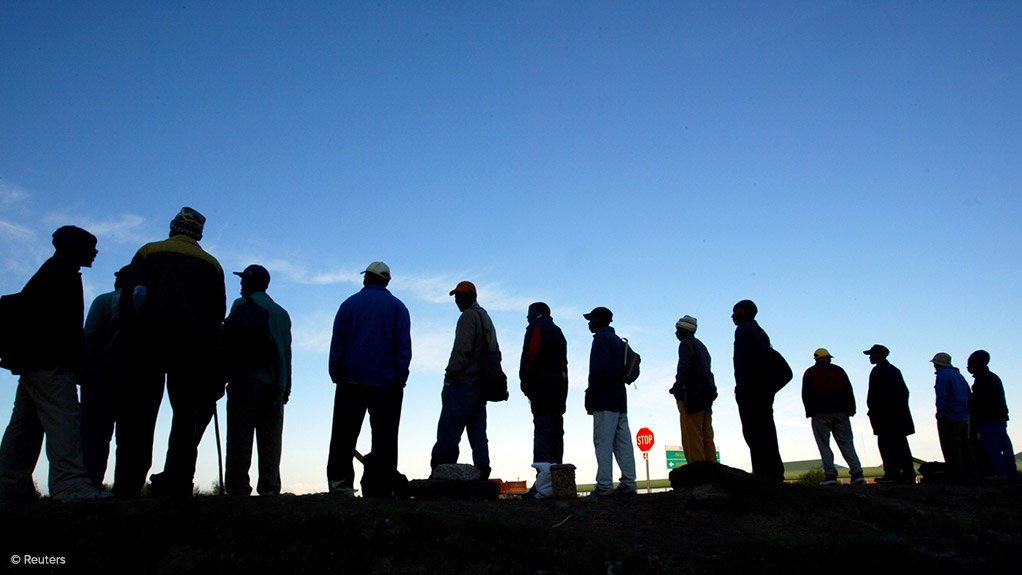Political parties on Wednesday welcomed the decrease in the unemployment rate, however, they slammed the Government of National Unity (GNU) for failing to grow the economy.
Statistics South Africa reported that South Africa’s unemployment rate decreased by 1.4 percentage points to 32.1% in the third quarter, from 33.5% in the second quarter.
The expanded unemployment rate, which includes discouraged work seekers, decreased by 0.7 of a percentage point to 41.9%, compared with 42.6% in the second quarter.
The Economic Freedom Fighters (EFF) said the decrease in unemployment was deceptive and did not signify real economic growth or improvement in the quality of employment opportunities.
“A closer examination reveals that these employment changes are largely driven by precarious and informal sector jobs, as well as part-time government employment schemes, rather than sustainable, full-time positions in the formal private sector,” the party said.
The EFF pointed to the increase of 294 000 employed persons – bringing the total employed to 16.9-million – which is said is insignificant in the context of the country’s persistent economic stagnation.
“This modest rise fails to address the fundamental economic challenges faced by millions of South Africans, especially Black African women and young people, who continue to bear the brunt of government failures and systemic inequality,” the party said.
The EFF alleged that after the first 100 days of the Democratic Alliance (DA) – African National Congress (ANC) coalition there were still no changes to the country’s economy and no significant growth in employment.
The party accused the GNU of ingratiating white capital, and of being unconcerned with the needs of ordinary South Africans.
GOOD secretary-general Brett Herron noted that although any improvement in the unemployment rate should be celebrated, the reality was this number remained stubbornly high.
“Eight-million South Africans are unemployed, with no income to support their families. In terms of the expanded definition, which includes the people who have given up looking for jobs, unemployment decreased by 0.7 percentage points but still sits at a socially unsustainable 12.2-million people,” said Herron.
He highlighted that the unemployment rate among black Africans remained higher than the national average with black African women continuing to be the most vulnerable.
He stated that South Africa was stuck in an economic growth crisis, trapping millions of South Africans in unemployment and unacceptable levels of poverty, more especially young and black South Africans.
“…we simply have no choice but to implement a Basic Income Grant. As we have highlighted before, unless the country can achieve a sustained economic growth rate of 5% to 6% per annum, South Africa will not be able to meaningfully reduce unemployment,” he said.
ActionSA Member of Parliament Alan Beesley said more bold measures were needed to lift South Africa out of its unemployment crisis.
Beesley highlighted that the unemployment numbers, while showing a slight improvement compared with the previous quarter, still painted a picture of an enormous unemployment crisis.
He said South Africa’s economy was simply not growing and as such was unable to create jobs.
“National Treasury has forecasted a growth rate of 1.1% for 2024, following only 0.4% growth in the first half of the year, with an average projection of 1.8% over the next three years. In contrast, emerging markets and developing countries are growing at 4.2% on average, while sub-Saharan Africa is expected to grow at 3.6%. South Africa is lagging its peers and even many developed countries. Given our population growth rate of 1.3%, this sluggish economic growth means that unemployment is likely to get worse,” he explained.
POSITIVE OUTCOME
Meanwhile, the ANC celebrated what it termed a “positive employment outcome”, saying the Quarterly Labour Force Survey demonstrated significant strides in job creation and economic stabilisation.
ANC spokesperson Mahlengi Bhengu-Motsiri said the party remained aware of challenges such as employment declines in the finance and private household sectors and persistently high youth unemployment.
The party emphasised the need for continuous skills development, particularly for youth, women, disabled and other historically marginalised groups.
“The ANC recognises that much work remains to be done to uplift the nation, but we are committed to growing employment through quality opportunities for the African majority in general, and youth and women in particular. This effort is part of our holistic approach to economic transformation and reflects our belief that South Africa’s best days are still ahead,” she said.
Deputy Minister in the Presidency Nonceba Mhlauli said the decline in the unemployment rate marked a significant step forward for the country’s economy and that it was a testament to government’s dedication.
“The Economic Recovery and Reconstruction Plan and Operation Vulindlela initiated by President Cyril Ramaphosa have been instrumental in driving economic growth and job creation. We are pleased to see these efforts yielding positive results,” she said.
DA Western Cape spokesperson on agriculture, economic development and tourism Noko Masipa said the decrease in unemployment in Western Cape was a reassuring sign that the efforts of the DA-run Western Cape government were starting to bear fruit, by enabling job creation from the private sector.
The Western Cape saw a 2.6 percentage point reduction in unemployment over the last quarter, with the unemployment rate standing at 19.6%.
“The reduction in the Western Cape’s unemployment rate is particularly impressive given that the Western Cape has the fastest growing population within the country,” pointed out Masipa.
EMAIL THIS ARTICLE SAVE THIS ARTICLE ARTICLE ENQUIRY
To subscribe email subscriptions@creamermedia.co.za or click here
To advertise email advertising@creamermedia.co.za or click here











